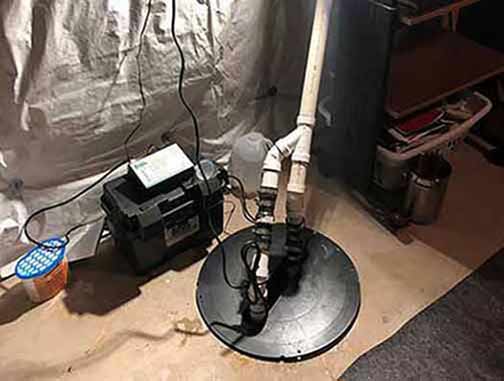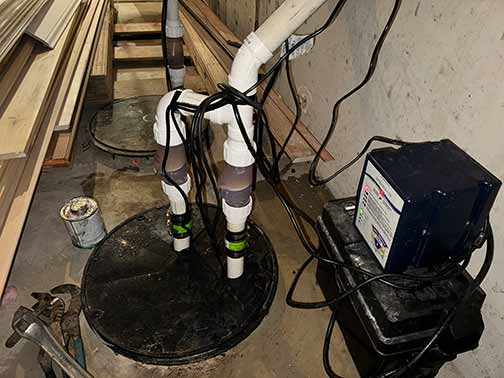
A sump pump is one of the most convenient flood protection measures in your home because sump pumps literally run themselves, explains TE Johnson & Sons Management. If a sump pump is installed correctly, it does not need your direct intervention to remove any floodwater that enters your basement.
That’s because the sump pump will power up automatically when it detects water in the basement and also power down after the water has been removed. This feature allows you to sleep, travel, and go to work without fear that your basement will be flooded in your absence.
That is by far one of the best things about a sump pump. But this advantage is also a sump pump’s biggest weakness. Because since it operates itself, how do you know when your sump pump stops working? A sump pump can fail while you comfortably assume it is working.
This problem is one of the major causes of flooding in homes where the homeowner has a sump pump to protect their home from flooding. In other words, the sump fails to fix the problem it was designed to solve. How do you deal with this?
Before answering this question, it is essential to explain why sump pump failures happen.
Common causes of sump pump failure
A stuck switch
If the float switch is jammed, the sump pump will not come on, or if it comes on, it will not go off. Both scenarios present significant problems.
Power outage
During heavy storms, when the likelihood of flooding is highest and sump pumps are needed the most, a power outage can cut the electricity supply to your sump pump.
Mechanical problems
Faults like a jammed or bent impeller can interfere with the function of the sump pump. If the impeller is faulty, the sump pump will not pump water.
Clogs and blockages
Debris can stop a sump pump from working, whether it is blocking the float switch, sump inlet, discharge pipe, or sump pump motor.
Sump pump overload
There are several reasons why sump pumps overload – a faulty float switch, a clogged discharge line, an undersized sump pump, and an oversized sump pit.
How to prevent sump pump failure in your home
Firstly, the home’s needs must be properly assessed before installing a pump system. You want to get accurate data on the average volume of water that enters your basement. This information will guide you when deciding on the size of the sump pump and sump basin for your home.
Secondly, you need a program of periodic inspections and routine maintenance to ensure the sump pump is in good condition. Test your sump pump at specific times of the year to ensure the system is working. Get a professional to do routine maintenance.
Lastly, you need a backup sump pump. The two steps above do not address power outages in your home. Even if your sump pump is fine, it will not matter if the power supply is cut off. But in those circumstances, a backup sump pump installation can protect your home from flooding.

The backup sump pump should be able to handle the volume of water that typically flows into your basement during heavy rainfall or rapid snowmelt.
How does a backup sump pump work?
A backup sump pump activates when the primary sump pump in the home fails. Since a backup sump pump does not rely on electricity (at least, not electricity from the grid), it can take the place of the primary sump pump until power is restored to the home.
There are two main types of backup sump pumps: battery-powered and water-powered backup sump pumps. Water-powered backup sump pumps depend on water pressure from the municipal supply. That makes them a less reliable option than battery-powered backup sump pumps.
What do you need to know when buying a battery-powered backup sump pump?
Battery capacity
How many hours can the sump pump battery last? Depending on the severity of the problems, a power outage in your home can last an entire day. The battery for your backup sump pump should last up to 48 hours. It is better if it can last longer.
The sump pump capacity
The backup sump pump should be able to handle the volume of water that typically flows into your basement during heavy rainfall or rapid snowmelt. Ideally, your backup sump pump should be able to pump as much water as your primary sump pump.
A backup float switch
The float switch controls the entire operation of your sump pump. Your backup sump pump will usually come with its float switch. But you may want to install an additional float switch to the existing setup as an extra layer of protection.
A reliable water alarm
A separate water alarm for your backup sump pump will notify you if anything goes wrong with the backup system. This notification will usually come before a situation arises where you will need the protection of the backup sump pump.
Finally, you need a trustworthy plumber with expertise in sump pump replacement and maintenance. A good plumber ensures that your primary and backup sump pumps meet the requirements of your home and the systems are in good working order at all times.